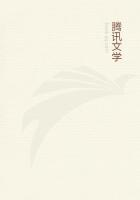Now, both facts are remarkable. They do not square at all with the rules and tendencies of private ownership and individualistic husbandry. The individual proprietor will naturally try to fence in his plot against strangers, to set up hedges and walls that would render trespassing over his ground difficult, if not impossible. And he could not but consider intermixture as a downright nuisance, and strive by all means in his power to get rid of it. Why should he put up with the inconvenience of holding a bundle of strips lying far apart from each other, more or less dependent because of their narrowness on the dealings of neighbours, who may be untidy and unthrifty? Instead of having one block of soil to look to and a comparatively short boundary to maintain, every occupier has a number of scattered pieces to care for, and neighbours, who not only surround, but actually cut up, dismember, invade his tenement. The open-field system stands in glaring contradiction with the present state of private rights in Western Europe, and no wonder that it has been abolished everywhere, except on some few tracts of land kept back by geographical conditions from joining the movement of modern civilisation. And even in mediaeval history we perceive that the arrangement does not keep its hold on those occasions when the rights of individuals. are strongly felt: it gives way on the demesne farm and on newly reclaimed land.
At the same time, the absence of perpetual enclosures and the intermixture of strips are in a general way quite prevalent at the present time in the East of Europe. What conditions do they correspond to? Why have nations living in very different climates and on very different soils adopted the open-field system again and again in spite of all inconveniences and without having borrowed it from each other?
There is absolutely nothing in the manorial arrangement to occasion this curious system. It is not the fact that peasant holdings are made subservient to the wants of the lord's estate, that can explain why early agriculture is in the main a culture of open fields and involves a marvellous intermixture of rights.
The absence of any logical connexion between these two things settles the question as to historical influence. The open-field arrangement is, I repeat it, no lax or indifferent system, but stringent and highly peculiar. And so it cannot but proceed from some pressing necessity.
It is evidently communal in its very essence. Every trait that makes it strange and inconvenient from the point of view of individualistic interests, renders it highly appropriate to a state of things ruled by communal conceptions. It is difficult to prevent trespasses upon an open plot, but the plot must be open, if many people besides the tiller have rights over it, pasture rights, for instance. It involves great loss of time and difficulty of supervision to work a property that lies in thirty separate pieces all over the territory of a village, but such a disposition is remarkably well adapted for the purpose of assigning to fellow villagers equal shares in the arable. It is grievous to depend on your neighbours for the proceeds and results of your own work, but the tangled web of rights and boundaries becomes ****** if one considers it as the management of land by an agricultural community which has allotted the places where its members have to work. Rights of common usage, communal apportionment of shares in the arable, communal arrangement of ways and times of cultivation -- these are the chief features of open-field husbandry, and all point to one source -- the village community. It is not a manorial arrangement, though it may be adapted to the manor. If more proof were needed we have only to notice the fact, that open-field cultivation is in full work in countries where the manor has not been established, and in times when it has not as yet been formed. We may take India or tribal italy as instances.
The system as exhibited in England is linked to a division into holdings which gives it additional significance. The holding of the English peasant is distinguished by two characteristic features: it is a unit which as a rule does not admit of division; it is equal to other units in the same village. There is no need to point out at length to what extent these features are repugnant to an individualistic order of things. They belong to a rural community. But even in a community the arrangement adopted seems peculiar. We must not disregard some important contradictions. The holdings are not all equal, but are grouped on a scale of three, four, five divisions -- virgates, bovates, and cotlands for instance. And the question may be put: why should an artificial arrangement contrived for the sake of equality start from a flagrant inequality which looks the more unjust, because instead of those intermediate quantities which shade off into each other in our modern society we meet with abrupt transitions? A second difficulty may be found in the unchangeable nature of the holding. The equal virgates are in fact an obstacle to a proportionate repartition of the land among the population, because there is nothing to insure that the differences of growth and requirements arising between different families will keep square with the relations of the holdings. In one case the family plot may become too large, in another too scanty an allowance for the peasant household working and feeding on that plot. And ultimately, as we have seen, the indivisible nature of the holding looks to some extent like an artificial one, and one that is more apparent than real. Not to speak of that provincial variation, the Kentish system of gavelkind, we notice that even in the rest of England large units are breaking into fractions, and that very often the supposed unity is only a thin covering for material division. Why should it be kept up then?















